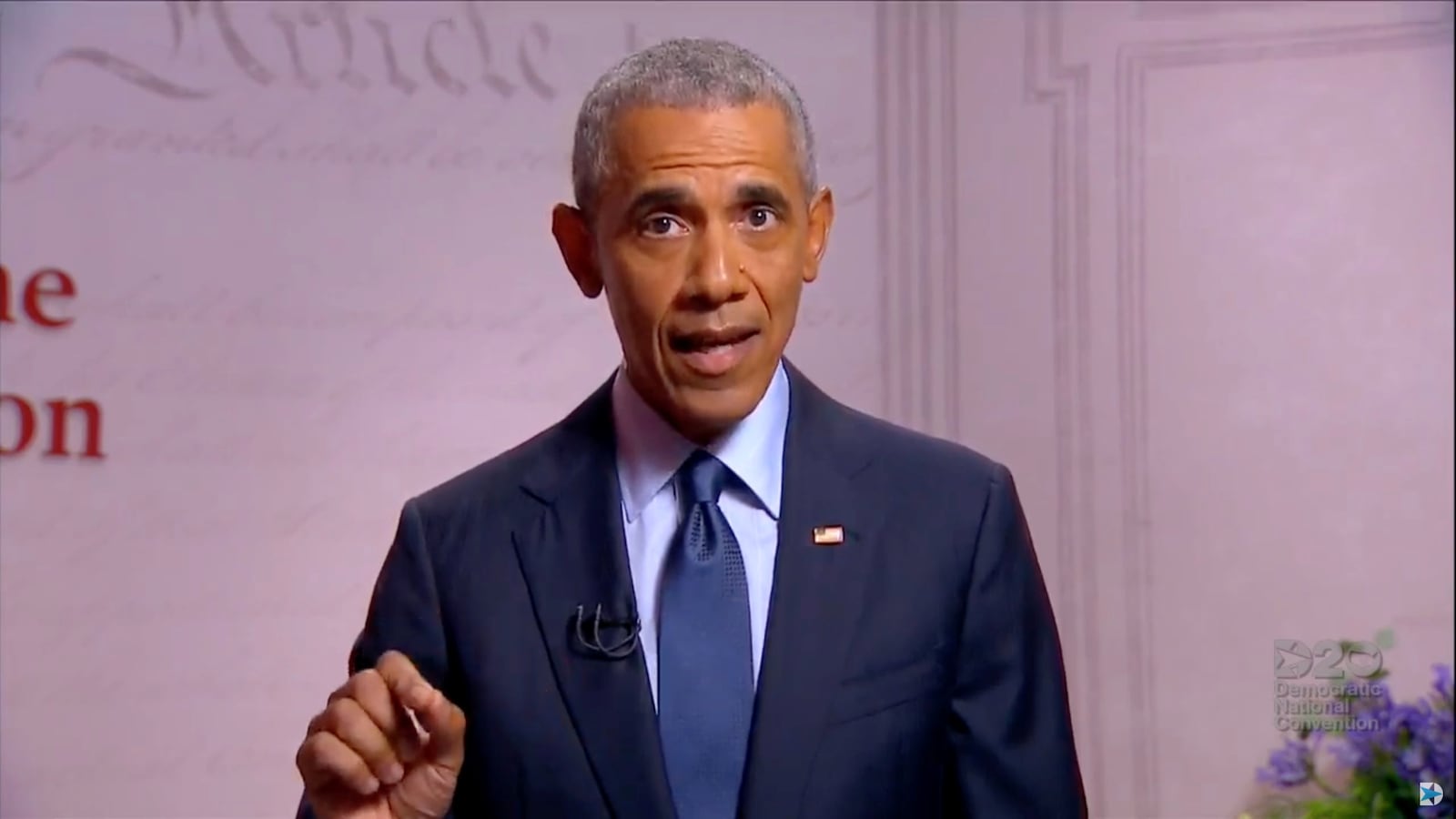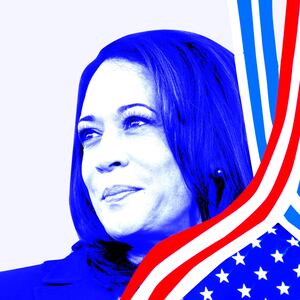Barack Obama likes to talk about the bending arc of history. His own story is a testament to it. Not just the well-known biographical portions, but the political parts as well.
In 2004, as an unknown state senator from Illinois, he delivered the keynote address at the Democratic convention that is remembered for its lofty oratory and themes of unappreciated national unity. As president for eight years, he re-committed to that ethos by vowing repeatedly that the “fever” of Republican opposition would eventually “break.”
On Wednesday night, he addressed the Democrats’ convention once again, this time as a party luminary and validator of his one-time vice president, Joe Biden. But there was no talk of the divide between red states and blue states being merely artificial. There was no insistence that rationality would eventually prevail among the Republican Party.
Instead, his address, like much of the night’s programming, was a cold, hard wake up call to those listening at home. Trump was irredeemable. Some political divides were unbridgeable. Hope was still there. But the world had gotten dark and time was running out. Biden was on the ballot, but he was more of a vessel than a protagonist in this election. It was, instead, democracy and the people protesting for it versus Trumpism and those willfully enabling it.
“You can give our democracy new meaning. You can take it to a better place. You’re the missing ingredient–the ones who will decide whether or not America becomes the country that fully lives up to its creed,” Obama said, addressing young voters. “That work will continue long after this election. But any chance of success depends entirely on the outcome of this election.”
Those who know Obama say the last three years have been filled with two senses: liberation that he’s no longer in the political spotlight, and alarm at what’s been happening in it. He did not have even modest hopes for Trump. But the trajectory the Trump presidency has taken has still disturbed him, and not just because almost all of his signature achievements have been dismantled.
“The fever broke,” is how Ben Labolt, Obama’s 2012 campaign press secretary put it, “but it broke in the other direction.”
Through it all, Obama stayed quiet, committed to a proposition that past presidents don’t comment on current ones and cognizant that anything he said would be weaponized by Trump. One aide noted that when Obama himself was serving, his team found opportunities in all the instances when Dick Cheney would speak out against him.
But Obama has also undertaken some ventures that gave insight into his increasingly despondent view of American politics. There was a deal to produce films and shows for Netflix that would serve as longer-form, substance heavy alternatives to cable news driven conversations; and an effort to help fight redistricting by investing in down ballot races—a manifestly important political function that he had not prioritized while in office.
Former and current aides say that Obama long ago recognized that the incentives built into the political system—from gerrymandered districts to a balkanized media ecosystem—were more powerful than pleas for better angels, moving oratory, or basic rationality. He spoke about the Republican fever breaking after Mitt Romney’s 2012 loss. But by 2013, when the government was shut down in an attempt to kill Obamacare, everyone in the White House knew it would never happen.
Trump’s election may have crystalized the idea that Republicanism was not venturing towards some more blissfully post-partisan direction. And that had to have been particularly true for Obama, who had mercilessly mocked Trump during a now infamous White House Correspondents dinner—an affair that initially was hailed as the end of Trump’s political ambitions but, in reality, just convinced him all the more to run for president.
But Trump was the symptom, not the cause.
“He’s just a dumber, crasser, more explicitly racist version of Mitch McConnell and Paul Ryan,” Obama’s longtime aide Dan Pfeiffer said. “He is cut from the same cloth. They cooked him up in a lab and then ultimately lost control.”
On Wednesday night, Obama seemed to acknowledge as much. He may have directed his daggers at the president, for abandoning lower case “d” democratic principles, for squandering America’s global standing, for botching a pandemic, and so on. But, subtly, his most biting line was saved for those in the Republican Party who had allowed it all to transpire.
“These shouldn’t be Republican principles or Democratic principles. They’re American principles,” he said. “But at this moment, this president and those who enable him have shown they don’t believe in these things.”
It was, for lack of a better word, stark, made even more so by the setting: Obama standing alone at the Museum of the American Revolution in Philadelphia, the words of the Constitution behind him—as if to symbolize just how little there was between Trump and the destruction of the American experiment.
After the address was over, Obama’s aides made the case that the ex-president hadn’t changed but that, rather, the world around him had. And maybe so. Talk of “hope and change” doesn’t particularly work when you are articulating your belief the country is under threat from within.
But they also acknowledged that what he had done on Wednesday night was historically unique. Ex-presidents don’t issue clarion calls about the direction their successors are taking. The arc of history, Obama was warning, was bending in the wrong direction.
“That’s how a democracy withers,” he said, “until it’s no democracy at all.”






